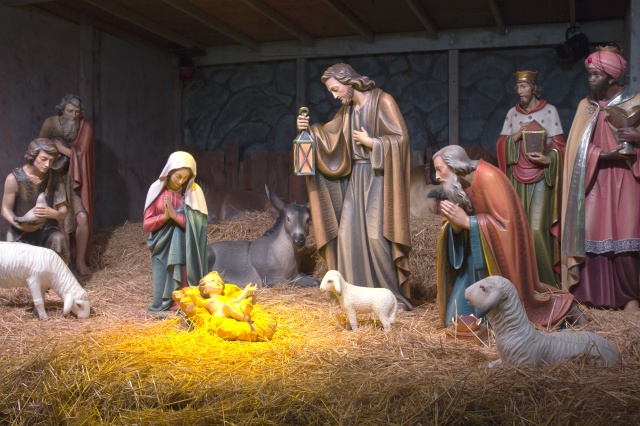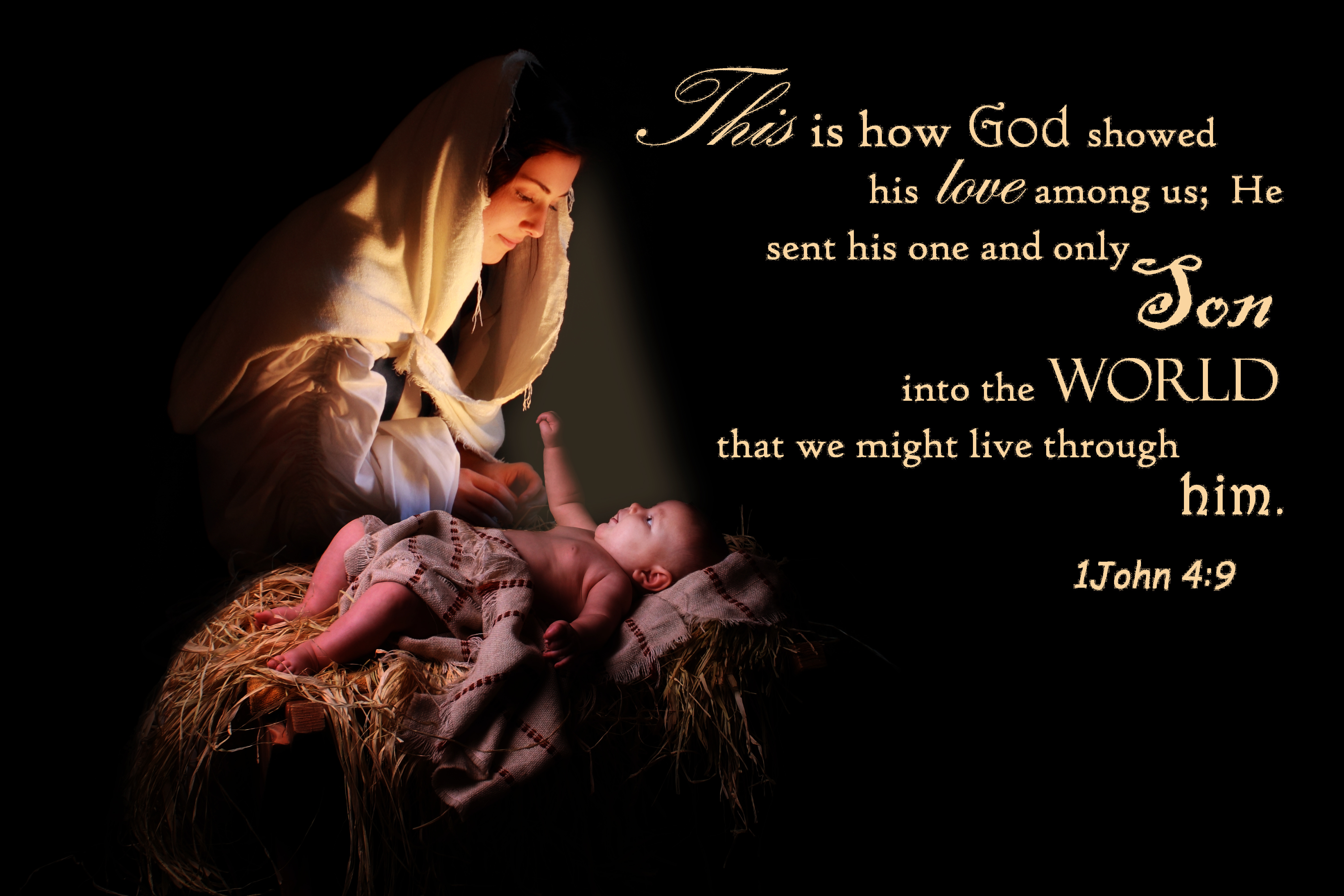
During the holiday season, there is no shortage of skeptics enthusiastically challenging, ridiculing, or casting doubt on the Biblical narrative about the virgin birth of Jesus.
- True skeptics are not likely to change; wild emotional claims suit their purpose just fine.
- Believers who have a soul-deep conviction regarding the Biblical record of the virgin birth are not likely to be dissuaded.
- In between, lie significant numbers of believers harboring views ranging from mild discomfort to serious questions about the virgin birth of Jesus.
The in-betweeners arise, in part, because the body of believers is sailing down the river rapids of cultural Humanism, while the believers are trying to paddle upstream, following the Biblical worldview.
The in-betweeners are not likely to raise questions within their place of worship for fear of embarrassment in front of fellow believers. They are unlikely to raise questions outside their place of worship, because the information is often not trustworthy.
The short answer to the dilemma perceived by some is that God created the “heaven and the earth.” [Genesis 1:1 KJV]. For the Creator of the universe, a virgin birth is no problem at all.
Nevertheless, for the finite human brain it is often helpful to cite illustrations that are a bit closer to human reality than the whole of Creation. For example, the Biblical record includes numerous births that are even more miraculous than the virgin birth of Jesus.
For example, Isaac, Jacob, Joseph, Samson, Samuel, and John the Baptist were all born to conspicuously barren women in an ancient culture that regarded barrenness a curse or a punishment from God. Although the mothers of these great Biblical figures may have lived prior to the writing of the Book of Proverbs, they clearly understood the principles of the thirtieth chapter:
“There are three things that are never satisfied, four that never say, ‘Enough!’: 16 the grave, the barren womb, land, which is never satisfied with water, and fire, which never says, ‘Enough!’ [Proverbs 30:15-16 NIV Emphasis added]

Barrenness was a very serious condition. At that time, only a very rare woman would be childless by choice, a married woman—never. As indicated in the table, Scripture clearly confirms that the mothers of these men were barren (Sarah, Rebekah, Rachel, Manoah’s wife, Hannah, and Elisabeth, respectively). Although all the mothers were mature, Sarah and Elisabeth were particularly old, as if the Lord was underscoring their extreme inability to bear a child, without Divine assistance.
Compare those births with the birth of Jesus who was born to a healthy, fertile, young woman, albeit a virgin. The miracle of the virgin birth required only a momentary overshadowing by the Holy Spirit. [Luke 1:35 KJV] There followed a pregnancy that was normal in every respect, except that Mary was hosting in her womb, the Savior forecast hundreds of years earlier. “Therefore the Lord himself shall give you a sign; Behold, a virgin shall conceive and bear a son, and shall call his name Immanuel.” [Isaiah 7:14 KJV]
The birth of Isaac was announced by God; the births of Samson, John the Baptist, and Jesus were announced by angels. The births of Jacob, Joseph, and Samuel were late in life and were answers to particular prayers. In all cases, Scripture emphasizes the barrenness of the mothers.
Sarah and Elisabeth were particularly old, far beyond childbearing years. Their husbands, Abraham and Zachariah, respectively, were also very old. All the supernatural births before the birth of Jesus, required a continuous series of daily miracles from conception until the baby was weaned from its mother’s breast.
At least for Abraham and Zachariah, the Lord had to completely restore their reproductive systems to enable them to participate in their role in conception. However, the string of miracles for the mothers was far greater, at least from a human viewpoint, especially for Sarah and Elisabeth.
Their reproductive systems had to be completely restored and rejuvenated. The Lord had to give them the ability to produce an egg, for them a long lost ability.
The mother’s uterus was completely restored with the with the ability to initially embed the baby in the wall of the uterus, allowing the formation of the umbilical cord through which life sustaining oxygen and nourishment would flow for nine months. The uterine muscles were given the strength to hold a baby for nine months, without rupturing or any form of physical damage.
For these women to bear a child, the entire endocrine system was restored to produce the great array of hormones necessary to sustain pregnancy, throughout the nine month period. Each mother’s uterus was altered to withstand the rigors of pregnancy and daily biochemical changes as well as the later movement of the child.
As childbirth approached, another burst of hormones prepared the way, softening the birth canal and initiating the childbirth sequence. About that time, a hormonal flush prepared the mother’s breasts for feeding the baby. Since baby formulas did not exist in ancient times, feeding a baby with the mother’s milk was essential. All the supernatural births in the above table could not have happened without the mothers’ physical support and nourishment before birth and the mothers’ personal breast milk nourishment for a long period after birth.
All of these complex birth patterns, completely unnatural in barren and old women, required many miracles greater than the virgin birth. For these mothers, pregnancy and nursing (breast feeding), became a series of daily miracles lasting years (nine months + nursing period)
Indeed, when the angel Gabriel was sharing, with Mary, God’s plan for her to give birth to the Savior, Gabriel further explained to Mary that her cousin Elisabeth had “…also conceived a son in her old age…(one) who was called barren.” Just to make sure the message is not in any way misunderstood, Gabriel immediately added, “For with God nothing shall be impossible.” [Luke 1:36, 37 KJV] The angel’s abundantly clear message was that if Elisabeth could give birth in her old age, Mary should not be surprised any longer or doubt God’s ability to enable her virgin birth.
John the Baptist is well known for preparing the way for the coming Messiah Jesus. Less often considered is that John’s preparation responsibilities began at his own conception. His presence in the previously barren womb of the old woman Elisabeth, prepared Mary for her virgin birth.
As one final nail in the skeptic’s intellectual coffin, consider God’s proclamation in the Book of Psalms:
13 For you created my inmost being; you knit me together in my mother’s womb. 14 I praise you because I am fearfully and wonderfully made; your works are wonderful, I know that full well. 15 My frame was not hidden from you when I was made in the secret place, when I was woven together in the depths of the earth. 16 Your eyes saw my unformed body; all the days ordained for me were written in your book before one of them came to be. [Psalm 139:13-16 NIV]
Since God created every individual who has ever lived from the Garden of Eden through today, how could a simple virgin birth possible be a problem for Him?
OK, skeptics! It’s your turn. For Bible-believing Christ-followers, the virgin birth is exciting, but not a problem.
What does it take to wake up the body of believers?
What does it take to wake up the clergy?







